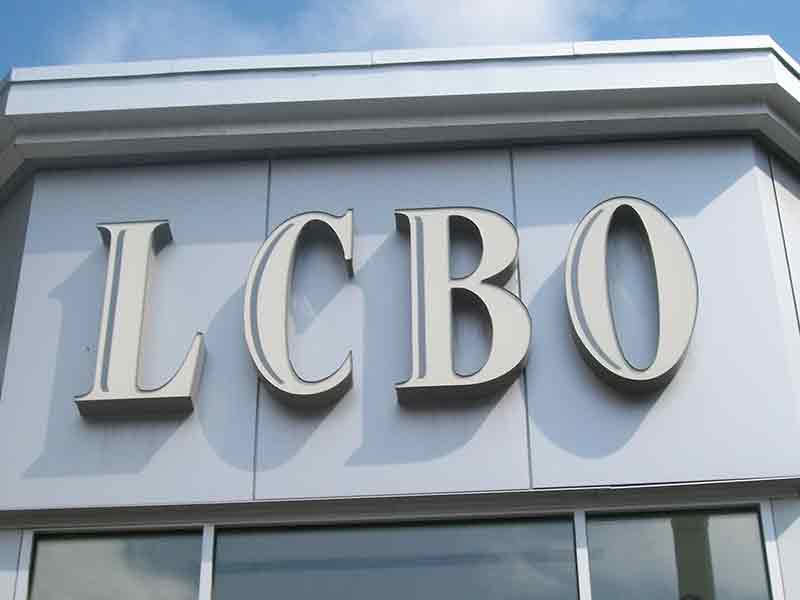The Canadian Food Inspection Agency (CFIA) has reversed an earlier directive to stop labelling wines made in the West Bank as “Products of Israel.”
In a statement July 13, the CFIA said it “regrets” the outcome of the wine labelling assessment that led to the Liquor Control Board of Ontario’s (LCBO) response regarding products from two wineries labelled as “Product of Israel.”
“In our assessment, we did not fully consider the Canada-Israel Free Trade Agreement (CIFTA),” the food agency explained. “Further clarification of the CIFTA indicates that these wines adhere to the agreement and therefore we can confirm that the products in question can be sold as currently labelled.”
The CFIA said it will follow up with the LCBO to correct its original response.
That original directive, which came to light via the LCBO, called for an end to the labelling of wines made in the West Bank as “Product of Israel.”
The LCBO, citing a July 6 notification from the CFIA, had asked its sacramental wine vendors to stop importing and selling wines labeled “Product of Israel” that are made in the West Bank and other “occupied” territories.
READ: TEXTBOOKS SUGGESTING ISRAEL USES CHILD SOLDIERS TO BE CORRECTED
B’nai Brith Canada CEO Michael Mostyn said he was pleased with the decision. “We thank the government of Canada for responding so quickly to the legitimate concerns of the Jewish community and all concerned Canadians.”
Mostyn said York Centre MP Michael Levitt should be specifically lauded for his quick work and leadership behind the scenes to help resolve this issue.
In a statement, Levitt said: “I was shocked and deeply concerned (about). . .the discontinuation of the sale of products from two Israeli wineries as a result of a notice issued by the CFIA. This action was completely at odds with both the Government’s long-standing close relationship with the State of Israel and our focus on broadening the Canada-Israel trade relationship, such as the upcoming ratification of an expanded Canada-Israel Free Trade Agreement.”
In a July 11 letter that lit up social media, the LCBO’s corporate affairs office requested that sacramental wine vendors – independent sellers who order wine used in religious ceremonies through the LCBO – stop any importation or sale of bottles labelled as “Product of Israel” from two West Bank wineries, “or others located in the same region, until further notice.”
“The CFIA clarified that ‘Product of Israel’ would not be an acceptable country of origin declaration for wine products that have been made from grapes that are grown, fermented, processed, blended and finished in the West Bank and occupied territory,” stated the letter to vendors from Vincent Caron, a policy adviser at the LCBO.
Named in the LCBO directive were the Psagot Winery in Psagot, north of Jerusalem, and the Shiloh Winery in Ma’ale Levona, a West Bank settlement southeast of Ariel.
In its letter, the liquor board said it was advised by the CFIA that the federal government does not recognize Israel’s “sovereignty” over areas captured in 1967: the Golan Heights, the West Bank, east Jerusalem and the Gaza Strip (the last still forms part of Ottawa’s official policy, even though Israel disengaged from Gaza in 2005).
Wine products labelled with “Israel” as their origin “would not be acceptable and would be considered misleading,” the LCBO stated.
Critics angrily denounced the move as bowing to the international Boycott, Divestment and Sanctions (BDS) movement against Israeli products made in post-1967 lands.
Both the Centre for Israel and Jewish Affairs (CIJA) and B’nai Brith Canada had they hoped the ruling would be reversed in a matter of days.
Israeli wines have been at the centre of a battle between Israel and the European Union over product labelling.
Privately, some observers expressed concerns that goods made in post-1967 Israeli territories are on the radar of several Canadian government agencies for possible sanction.
In response to the revocation of the directive, CIJA Chair David J. Cape said in a statement: “Like many in our community, we were alarmed that this decision was taken. Such guidelines undermine the Canada-Israel Free Trade Agreement… It also sought to impose a unique, punitive standard on Israelis that the Government has consistently rejected. We thank the Government of Canada for its rapid action in resolving this matter, and for reaffirming the strength of the Canada-Israel relationship.”
